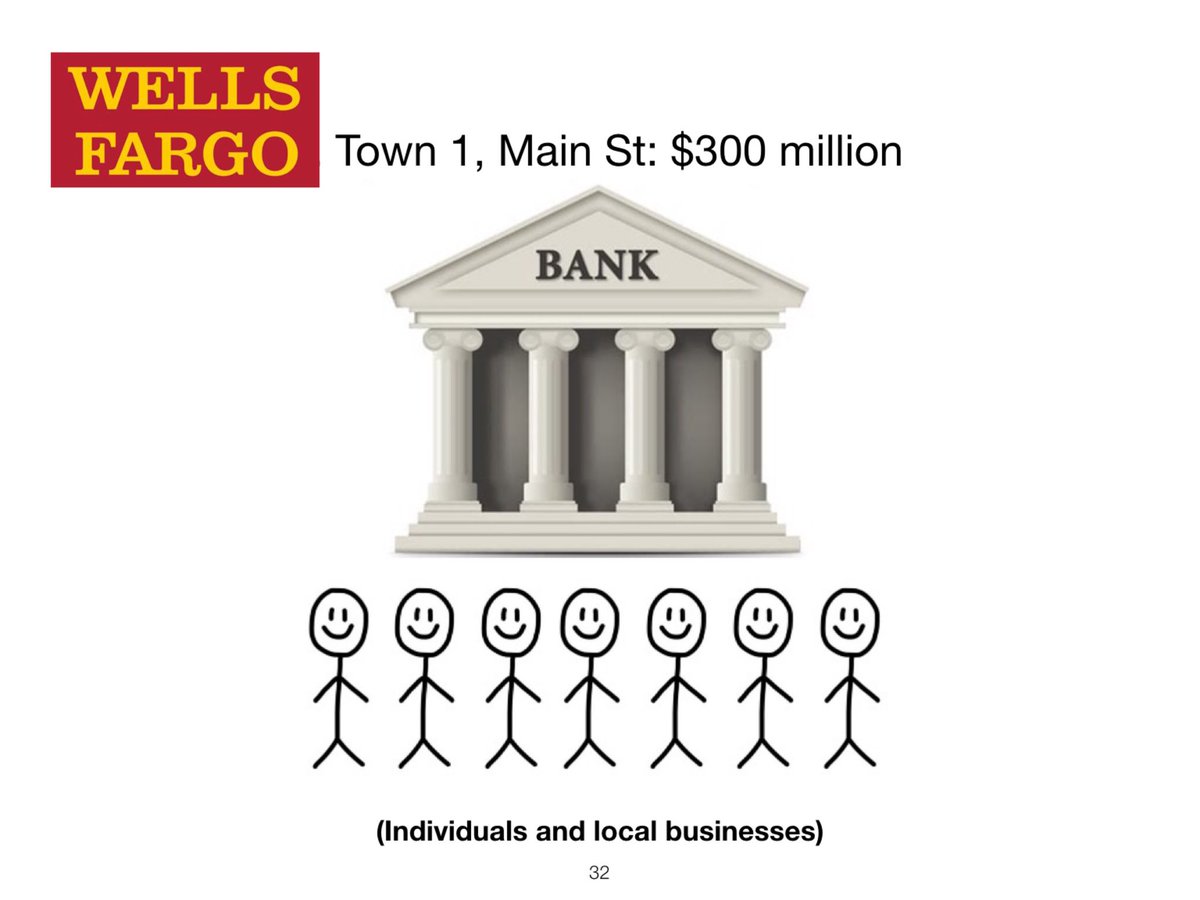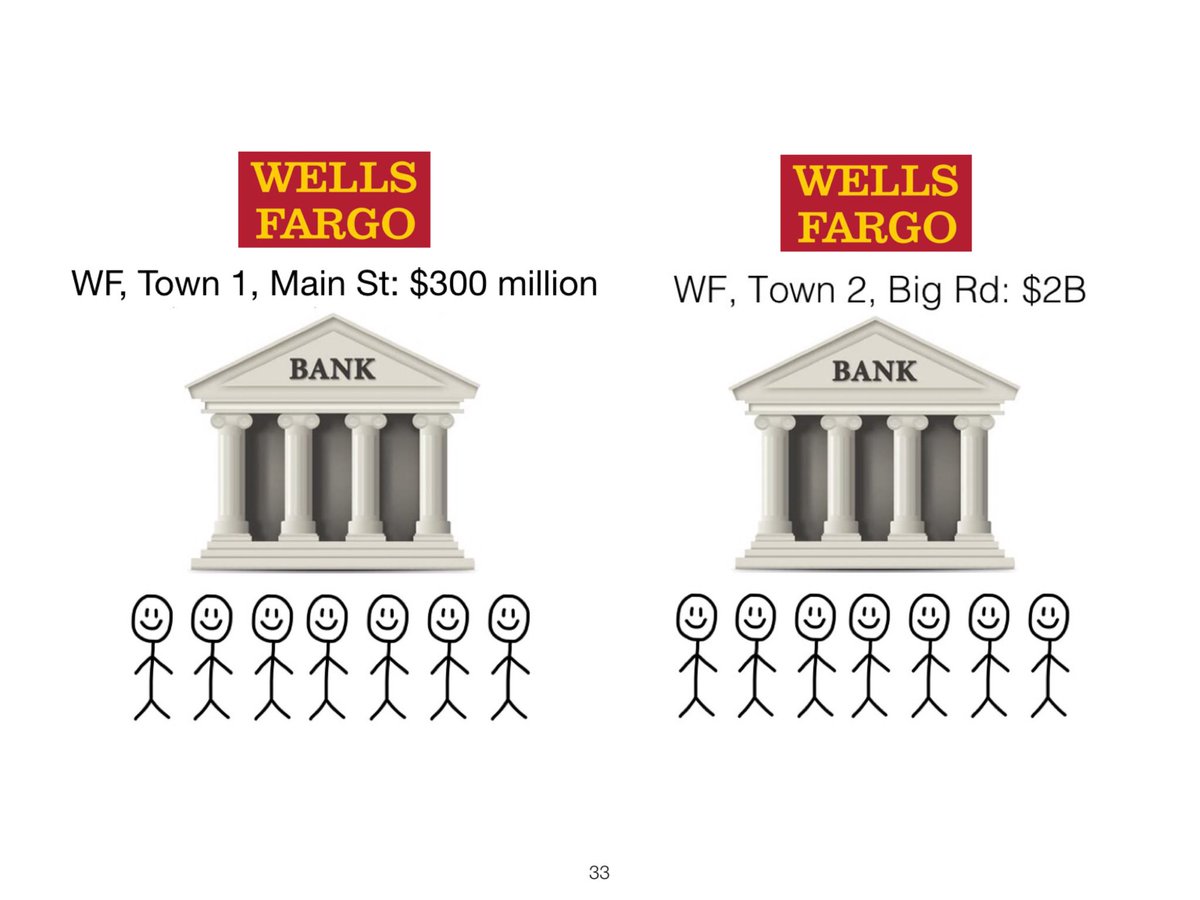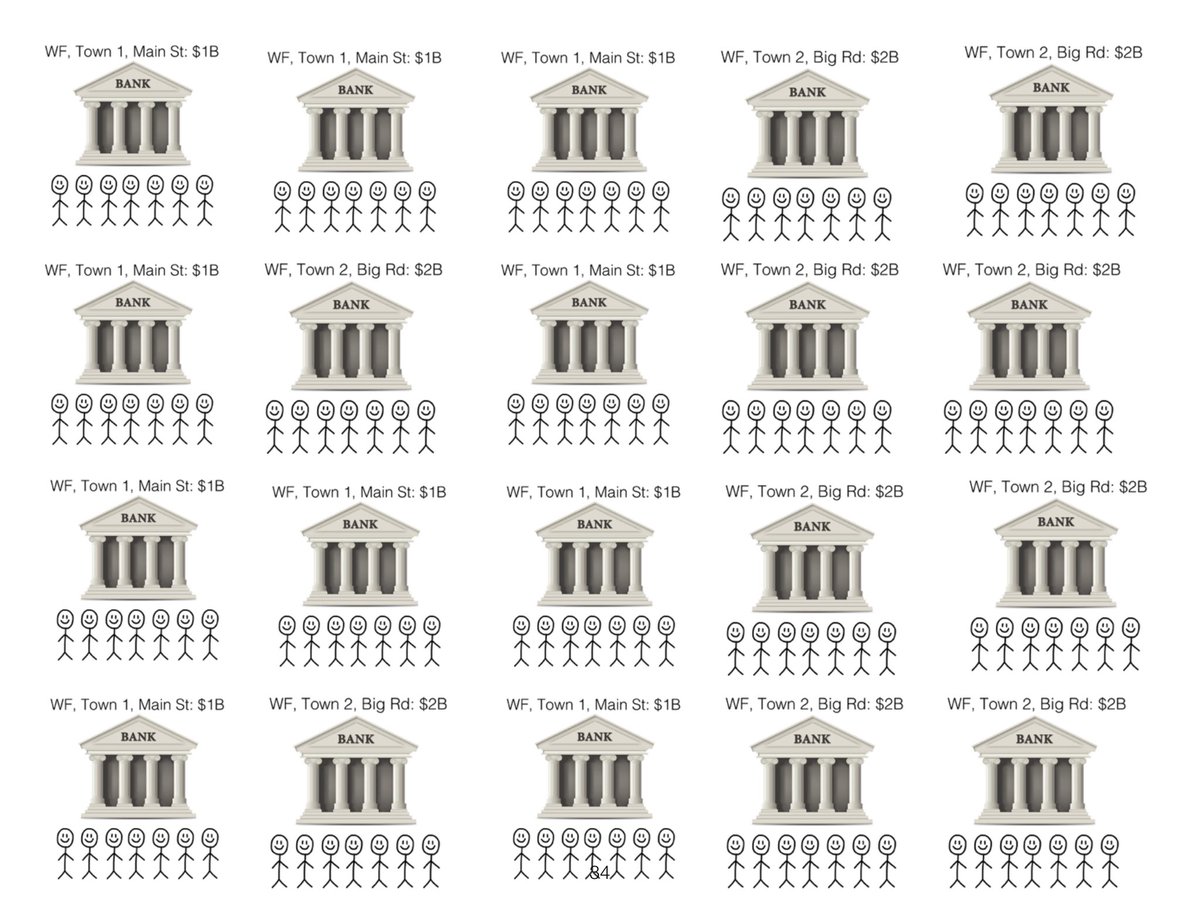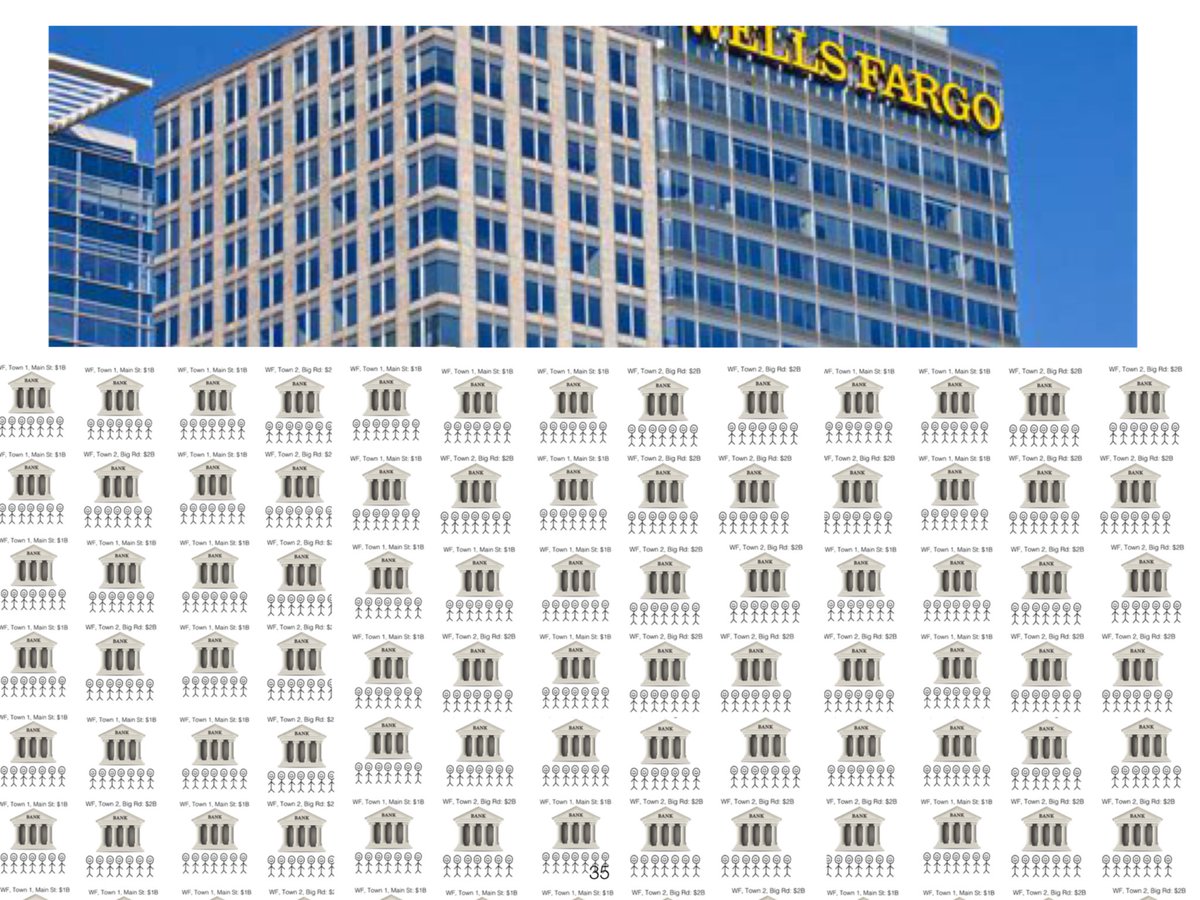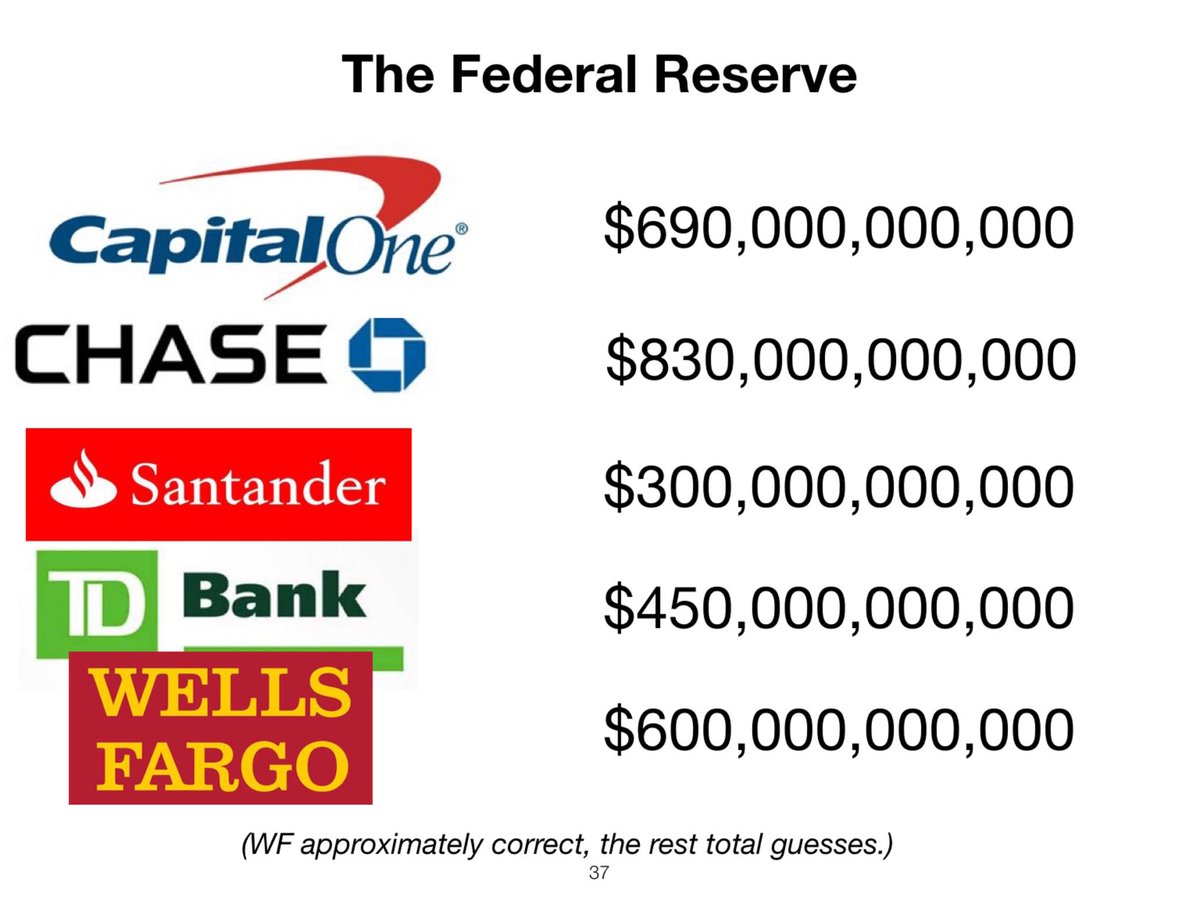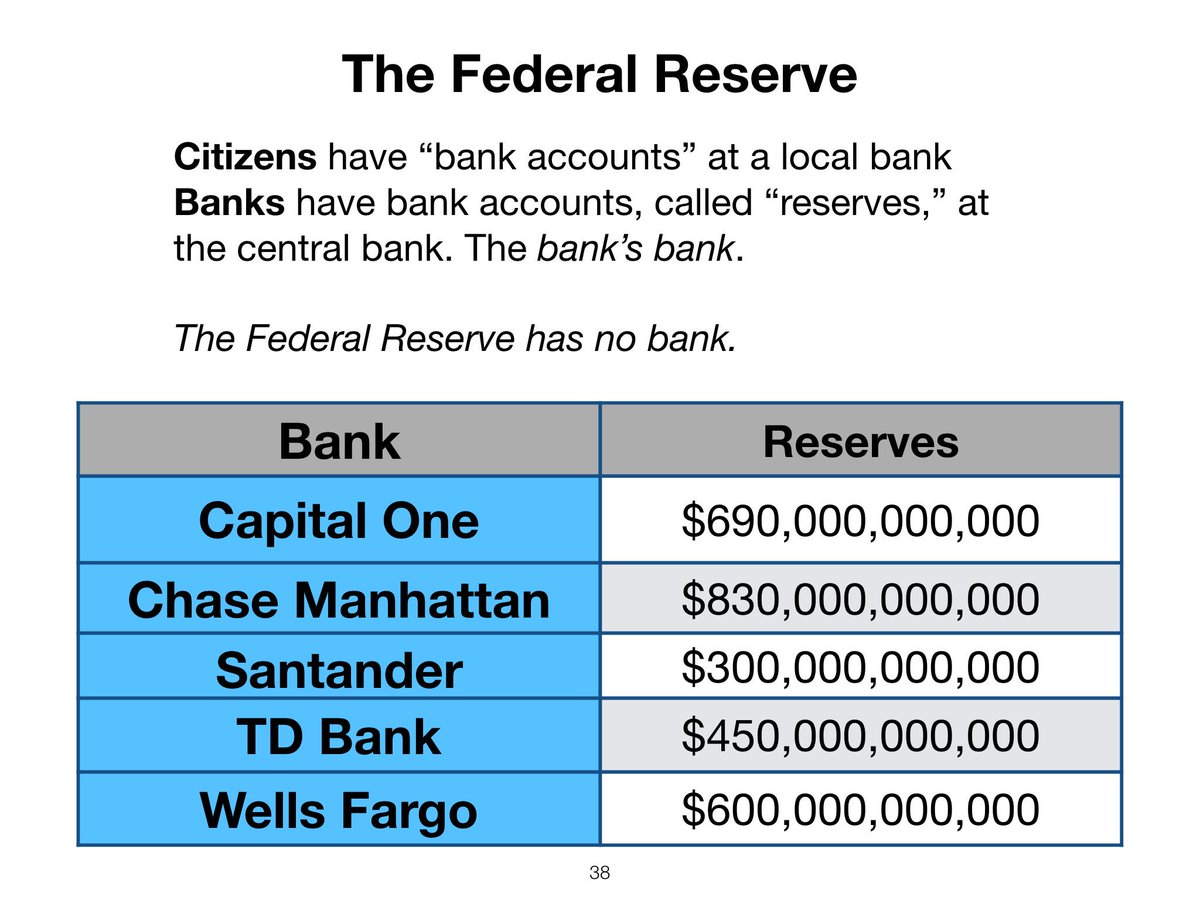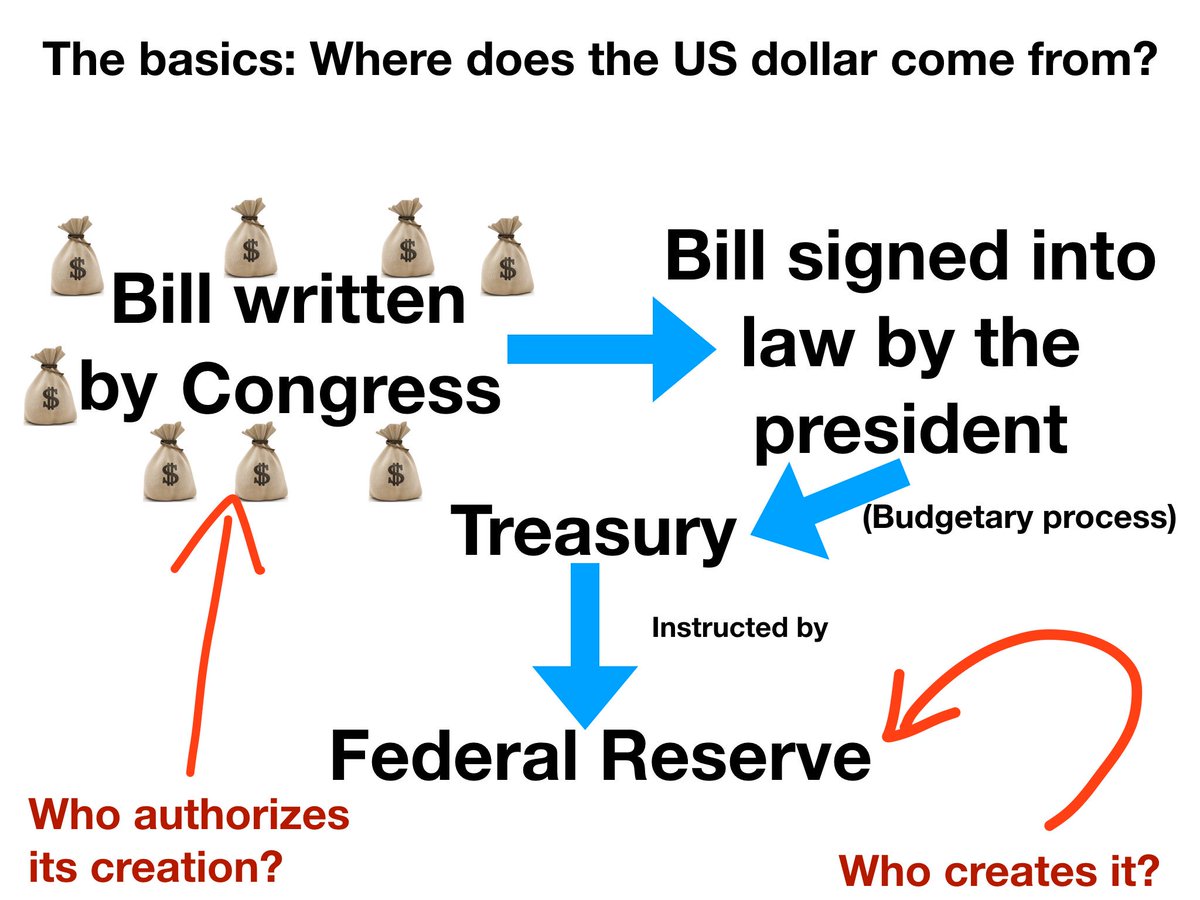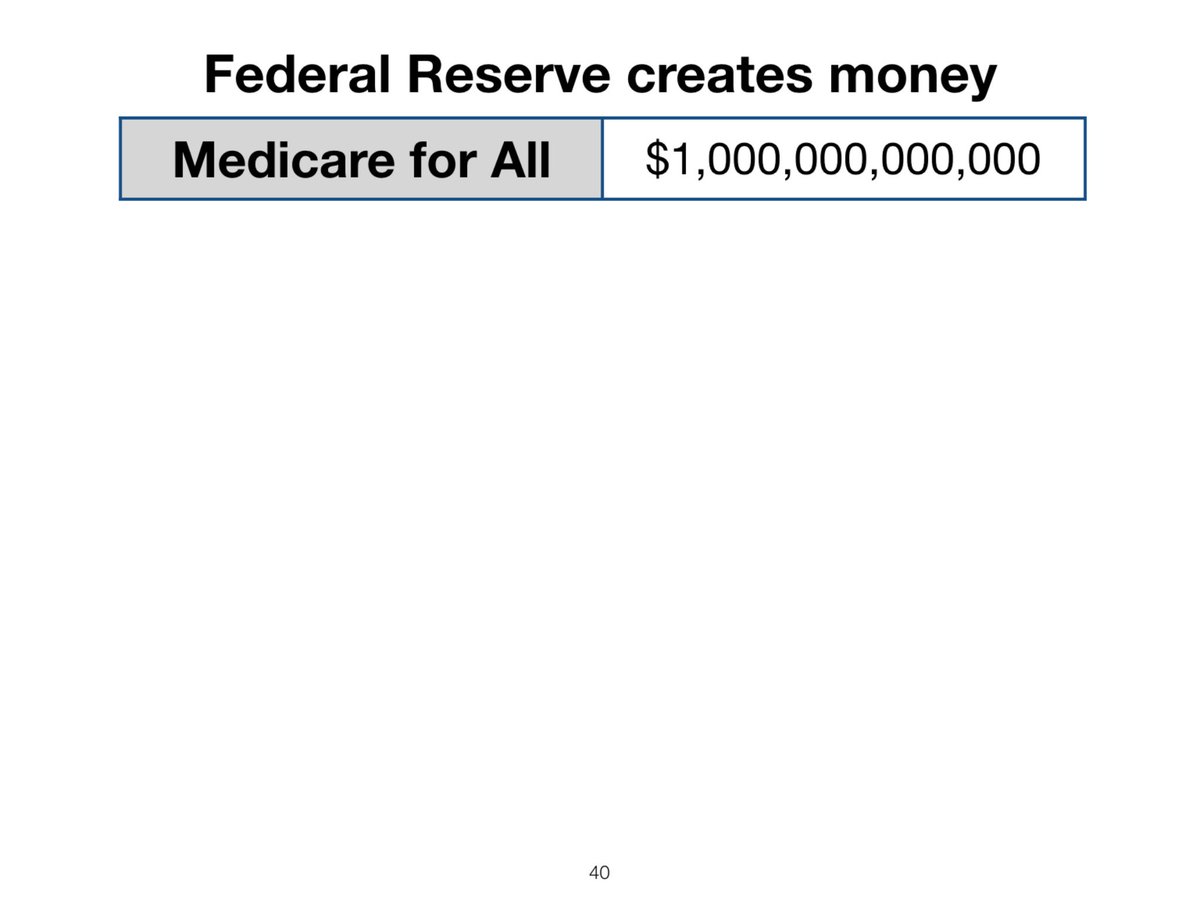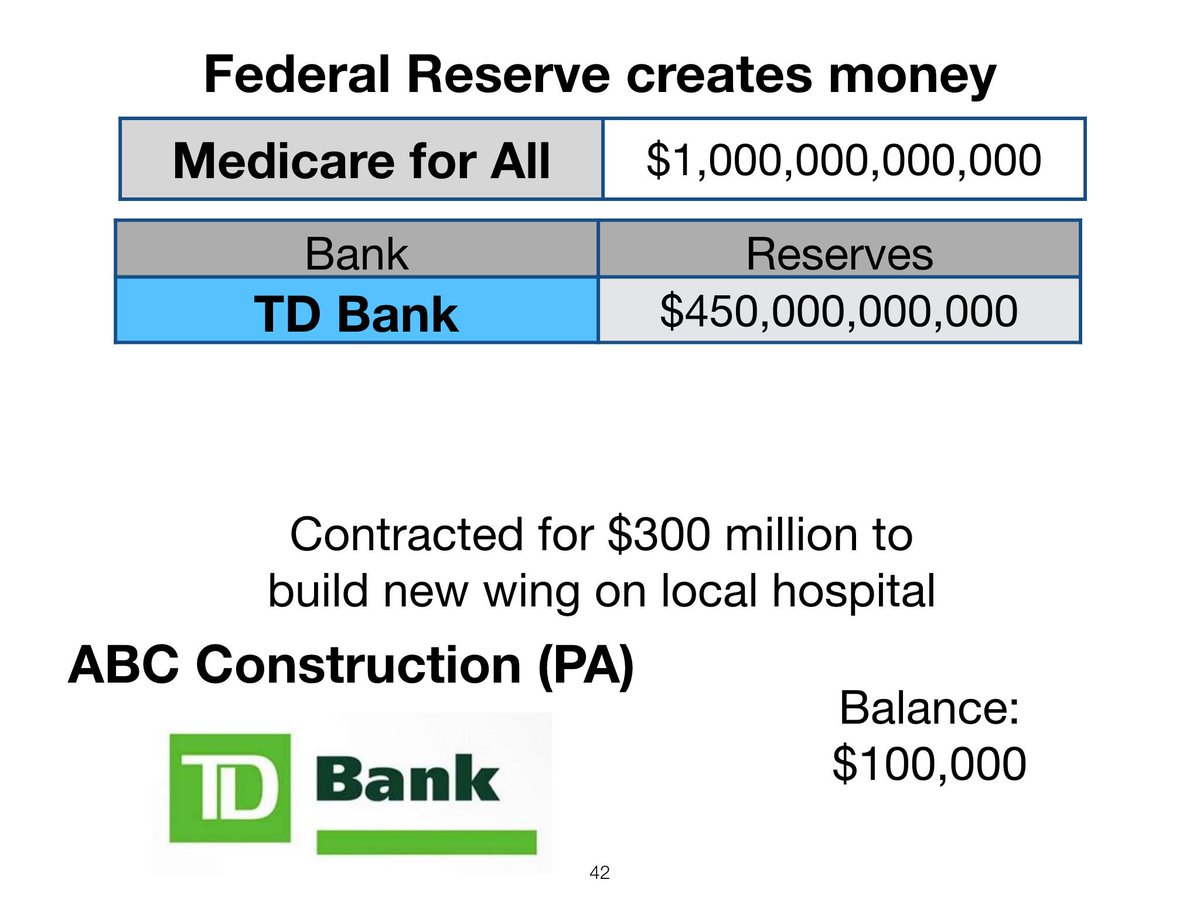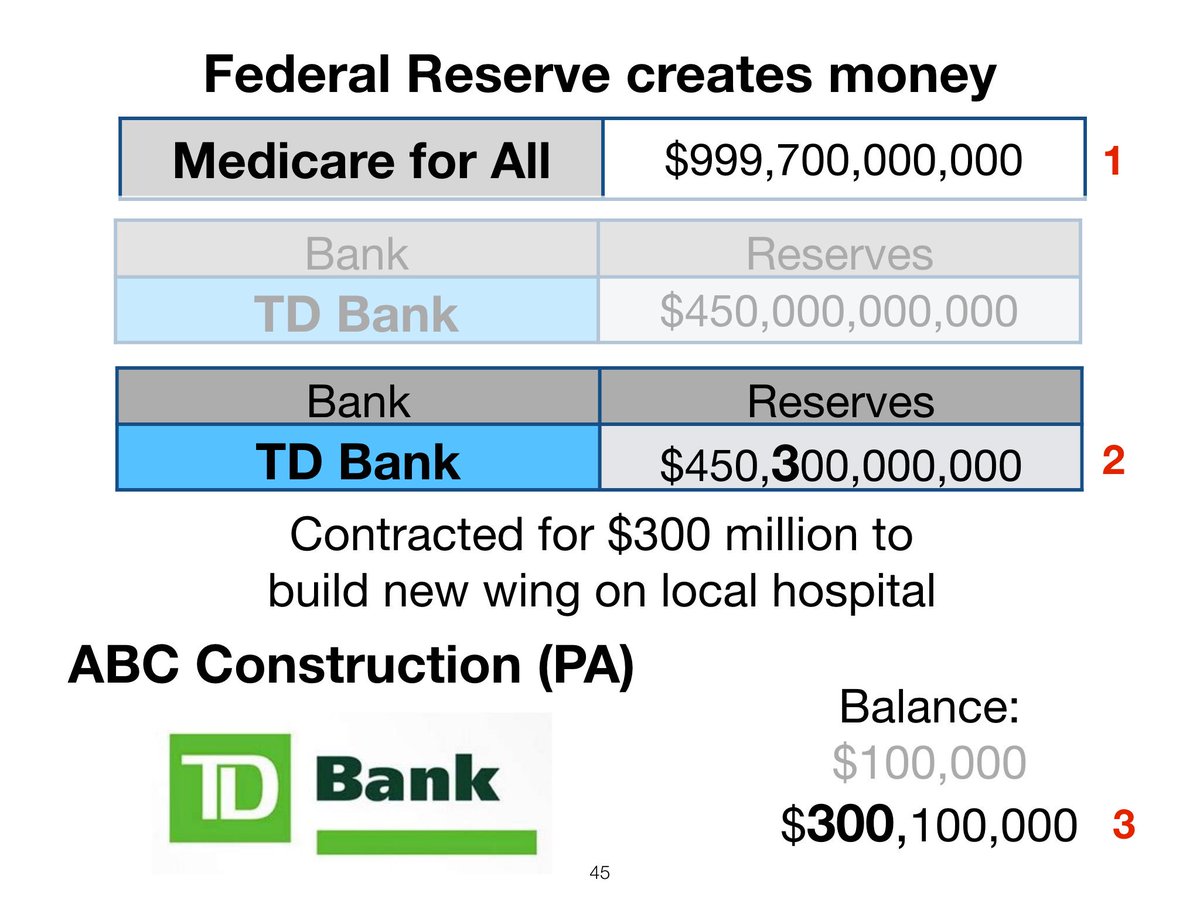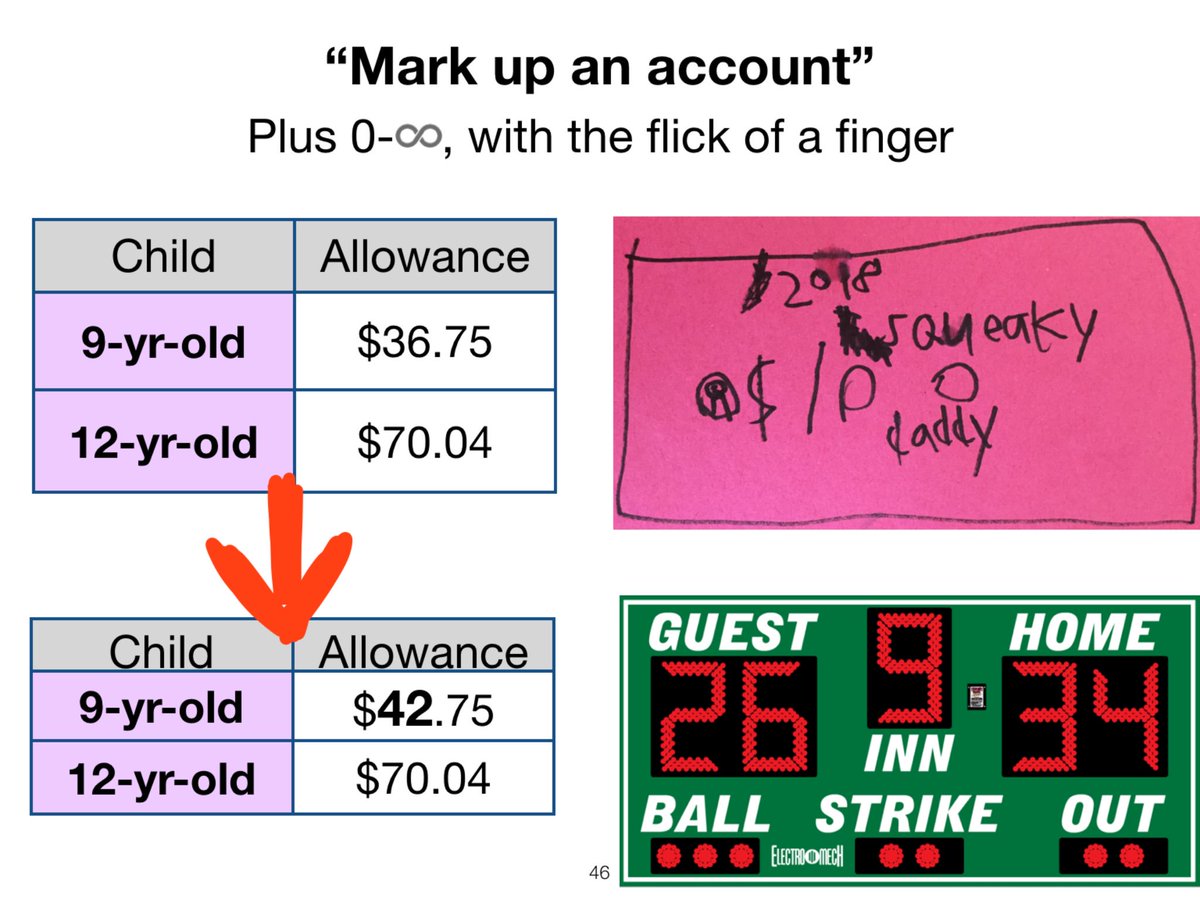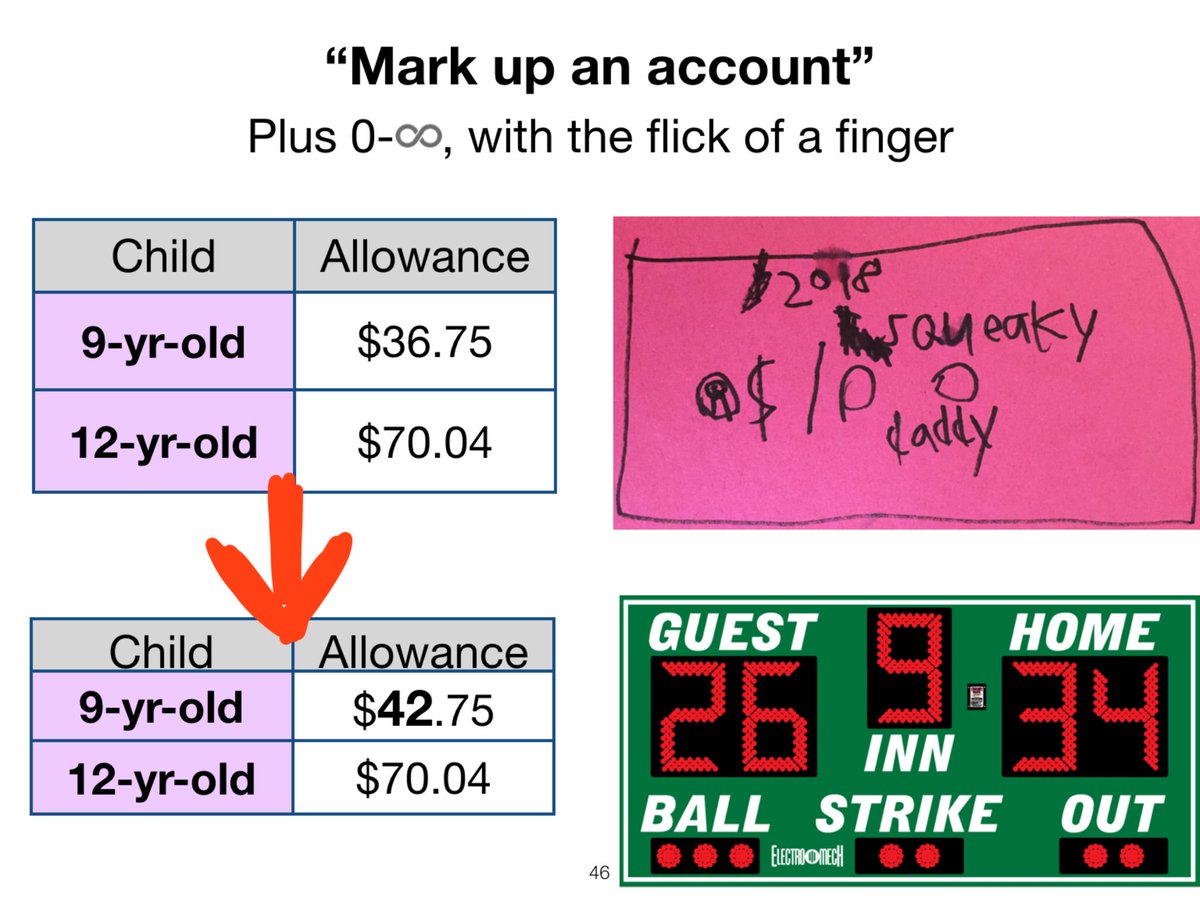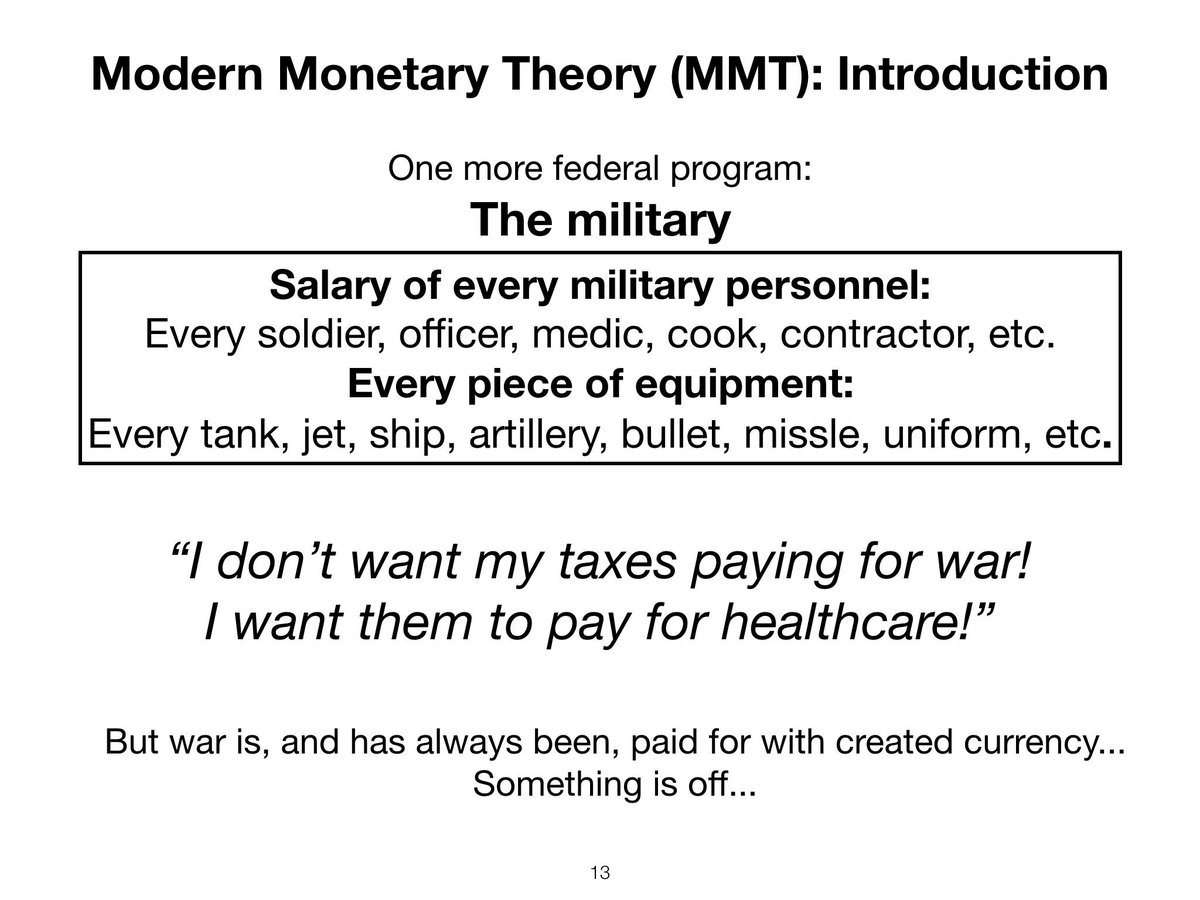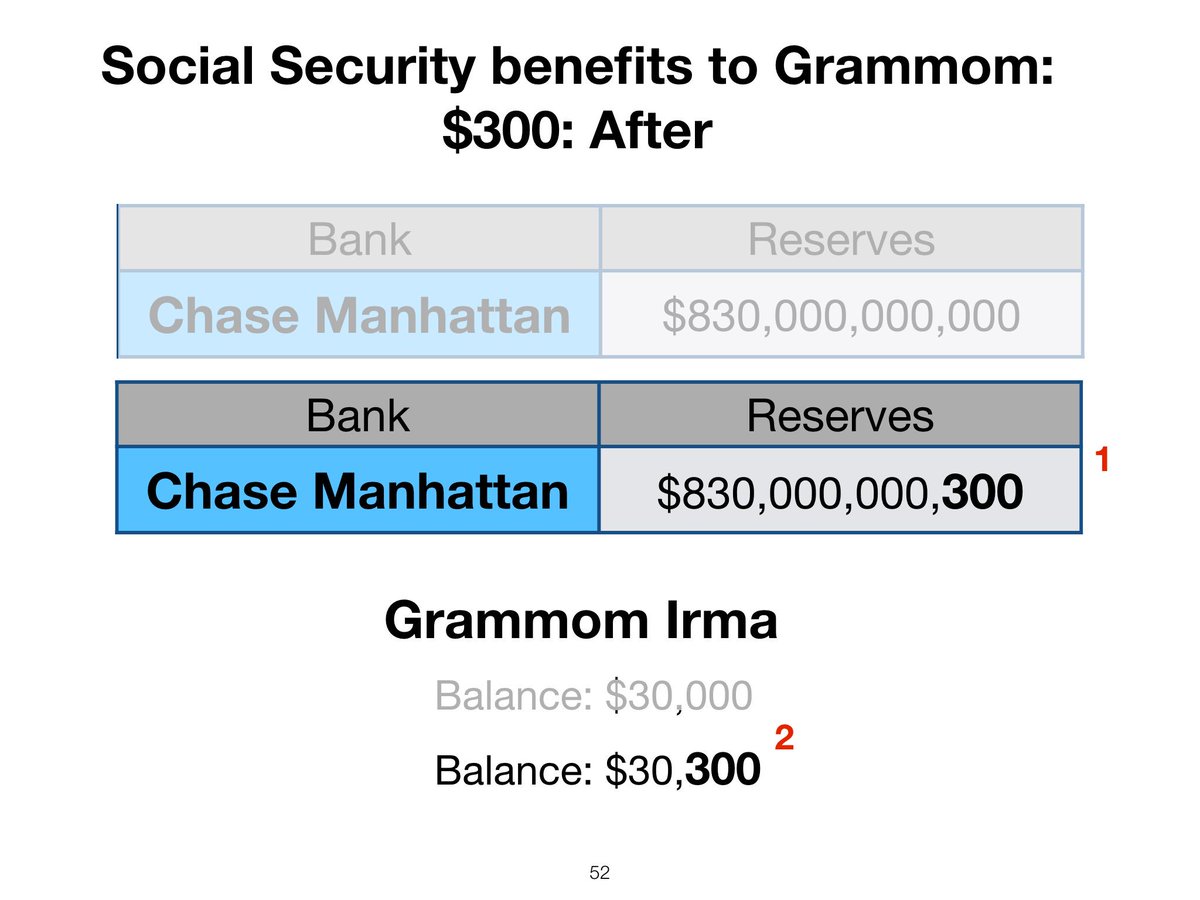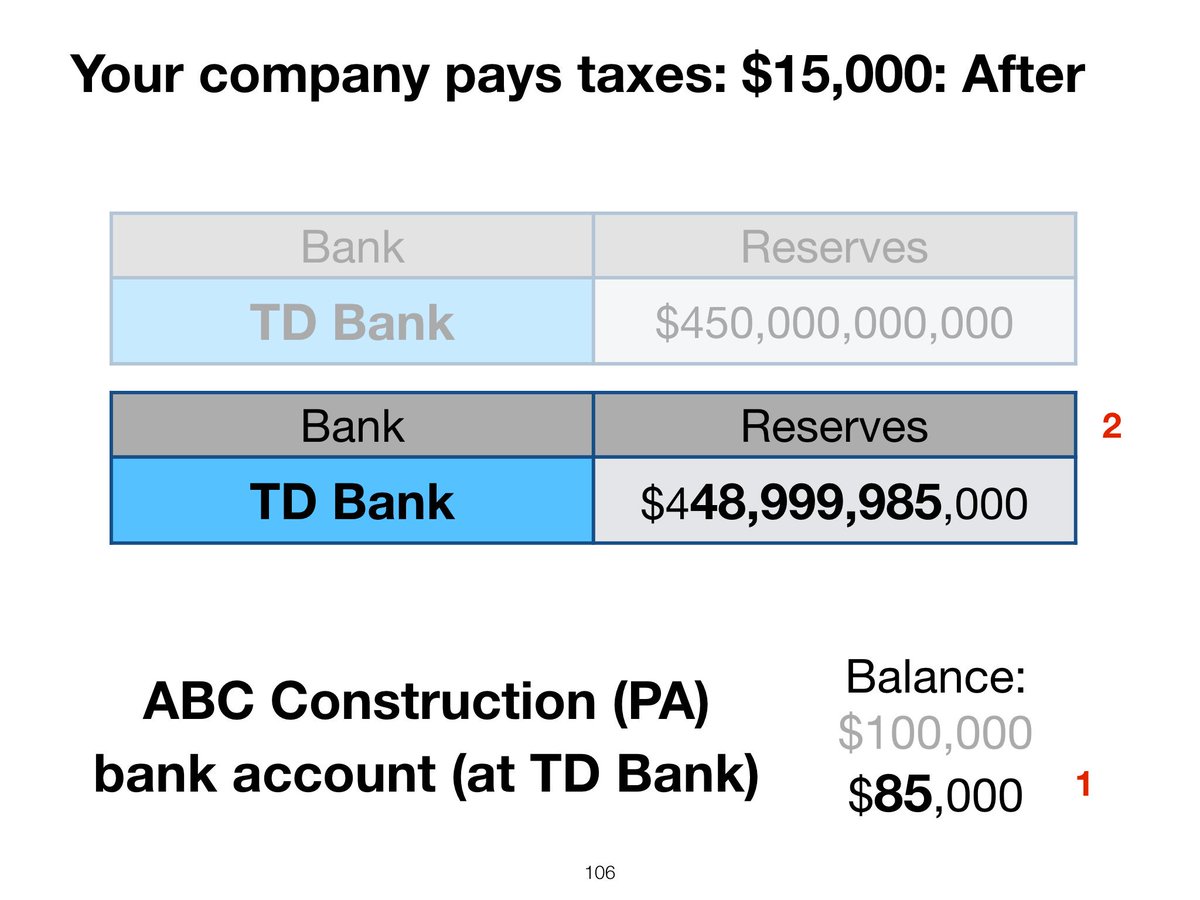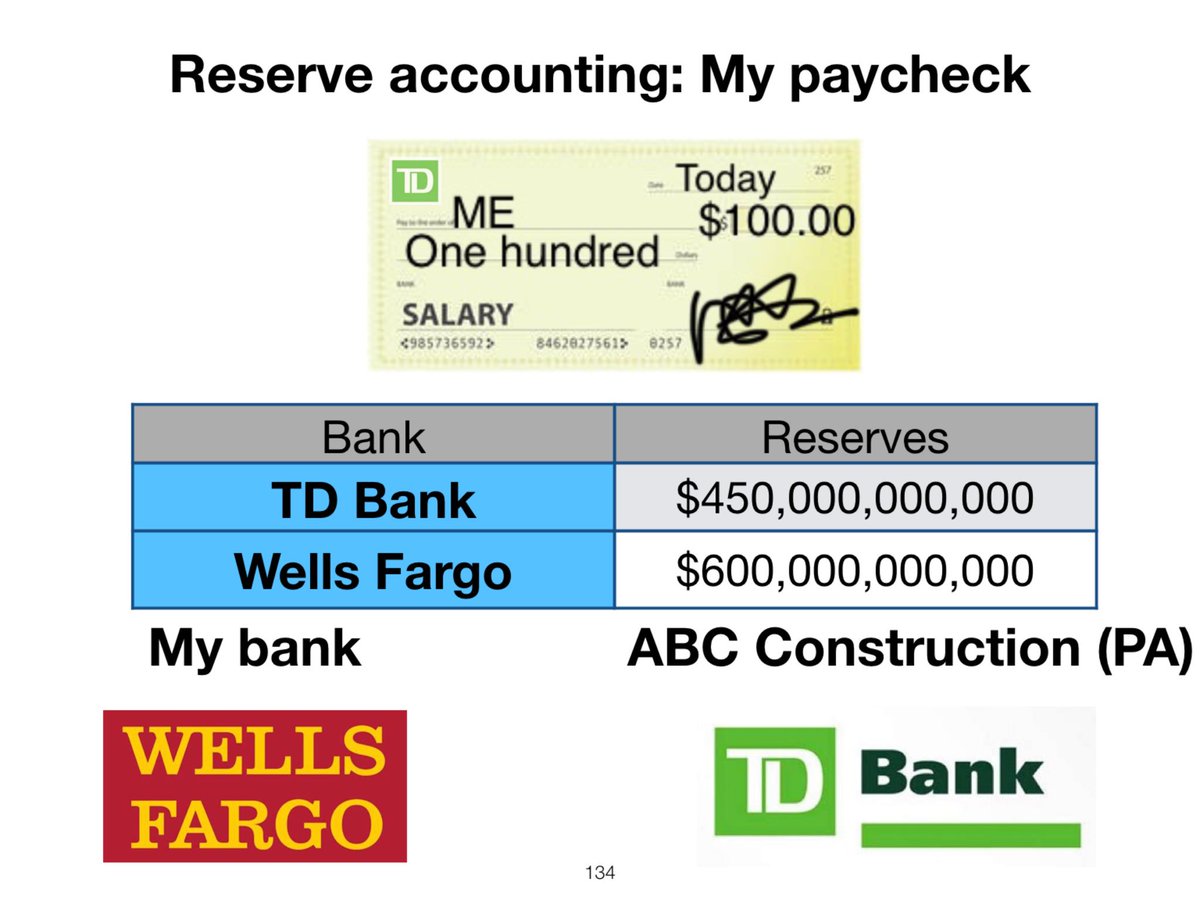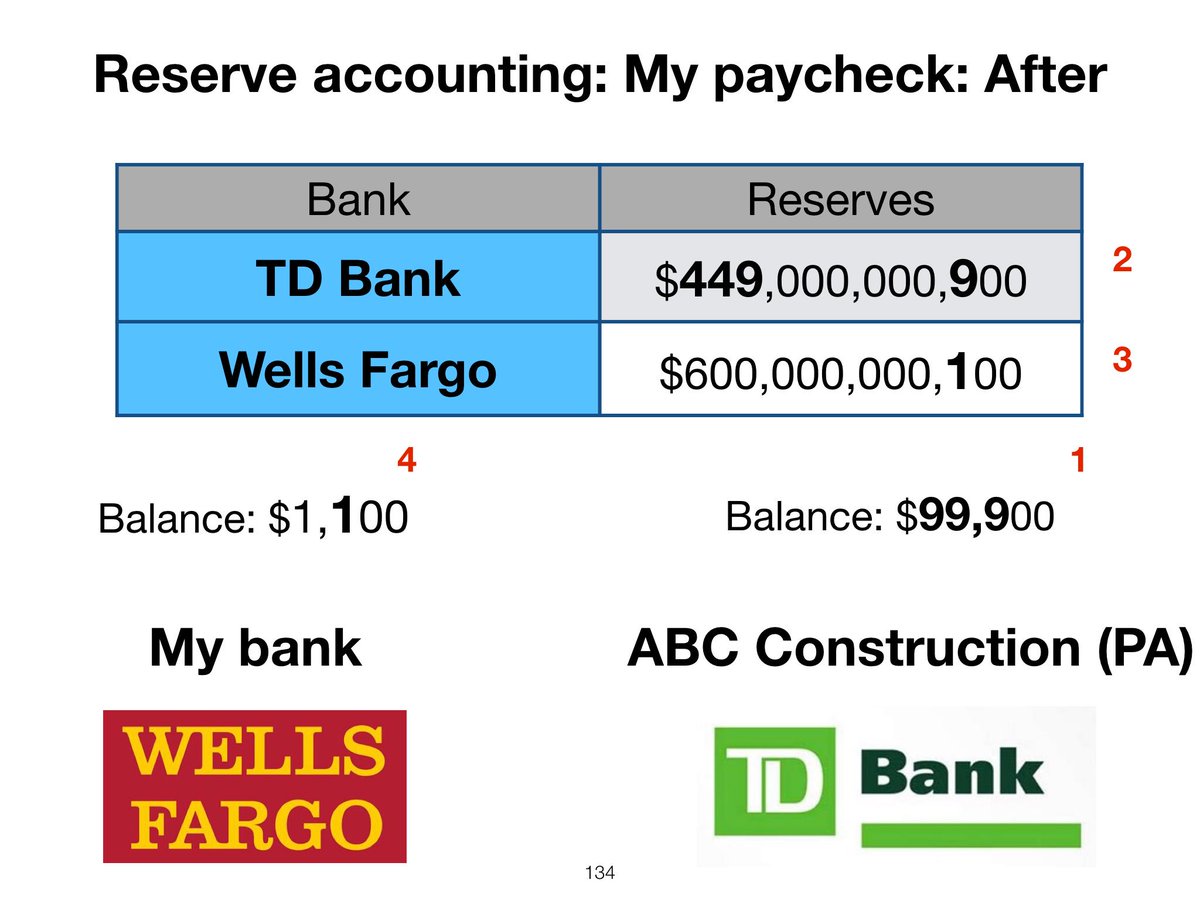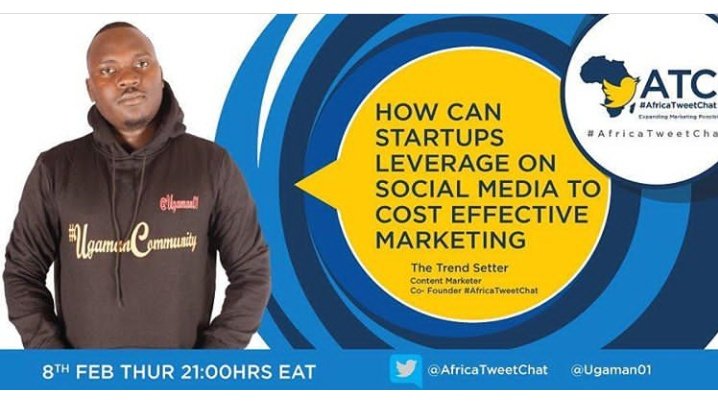You and I have a bank account at a local bank.
The bank (via its corporate headquarters) has a bank account at the central bank (CB). The CB is the BANK’S bank. There is none above it.
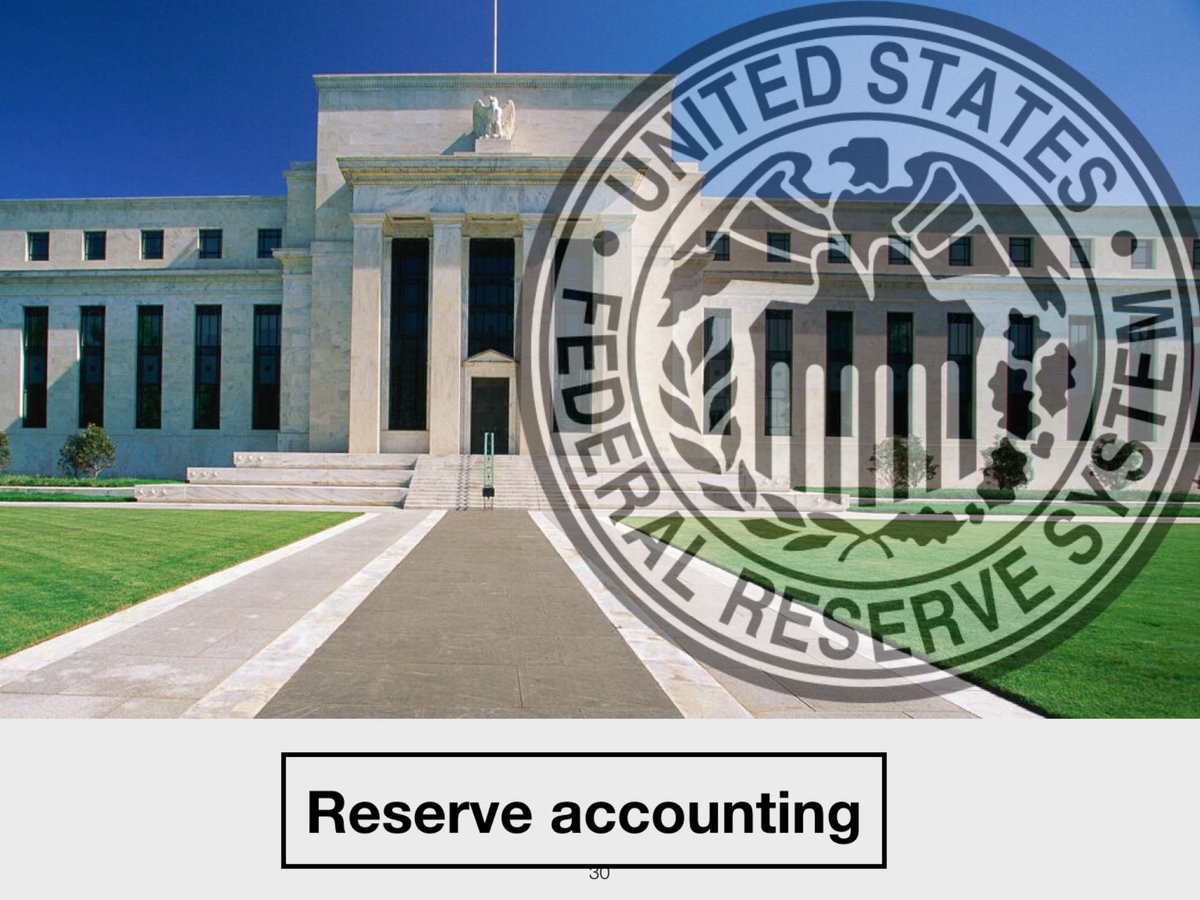
You and I call our bank accounts "bank accounts."
Banks call their CB bank accounts "reserves."
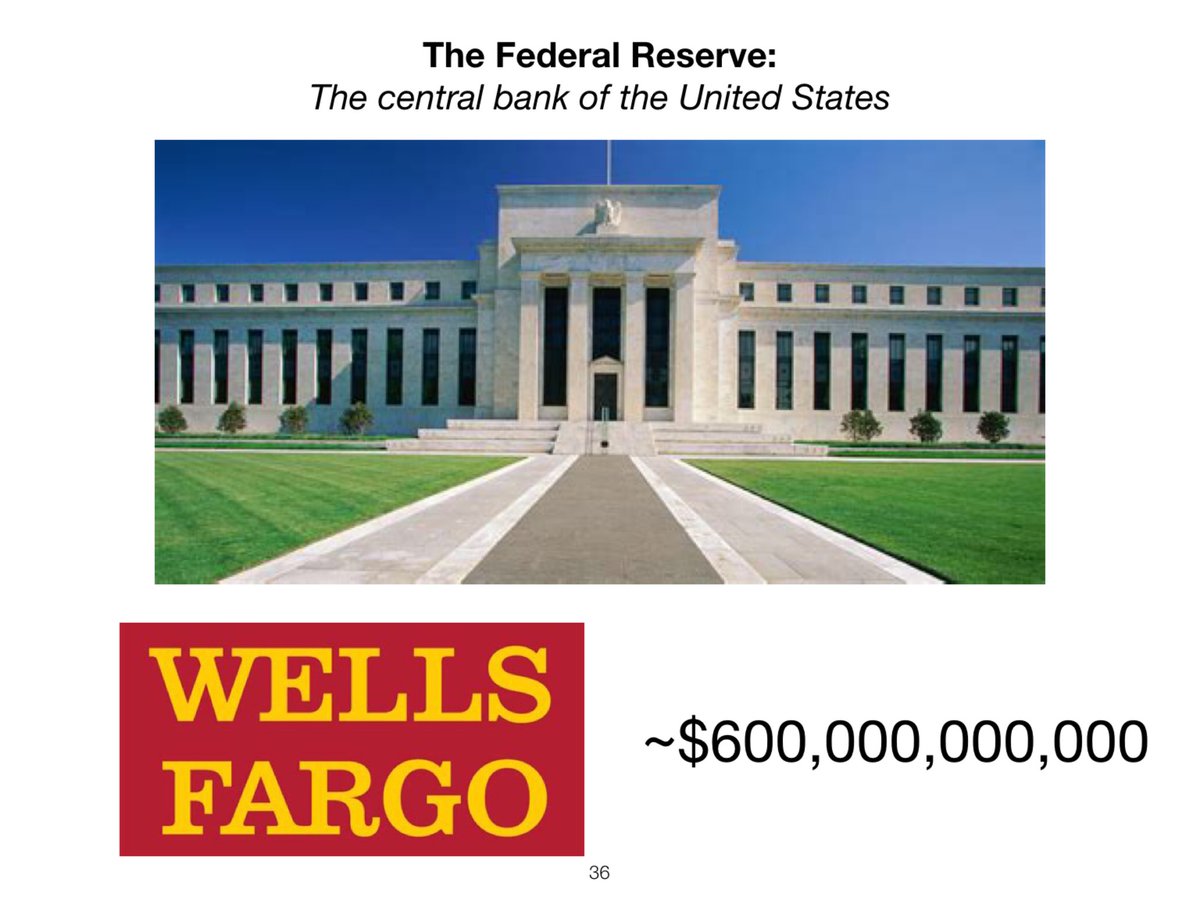
By "not literally," he simply means that the money is created electronically, not physical paper bills or metallic coins.
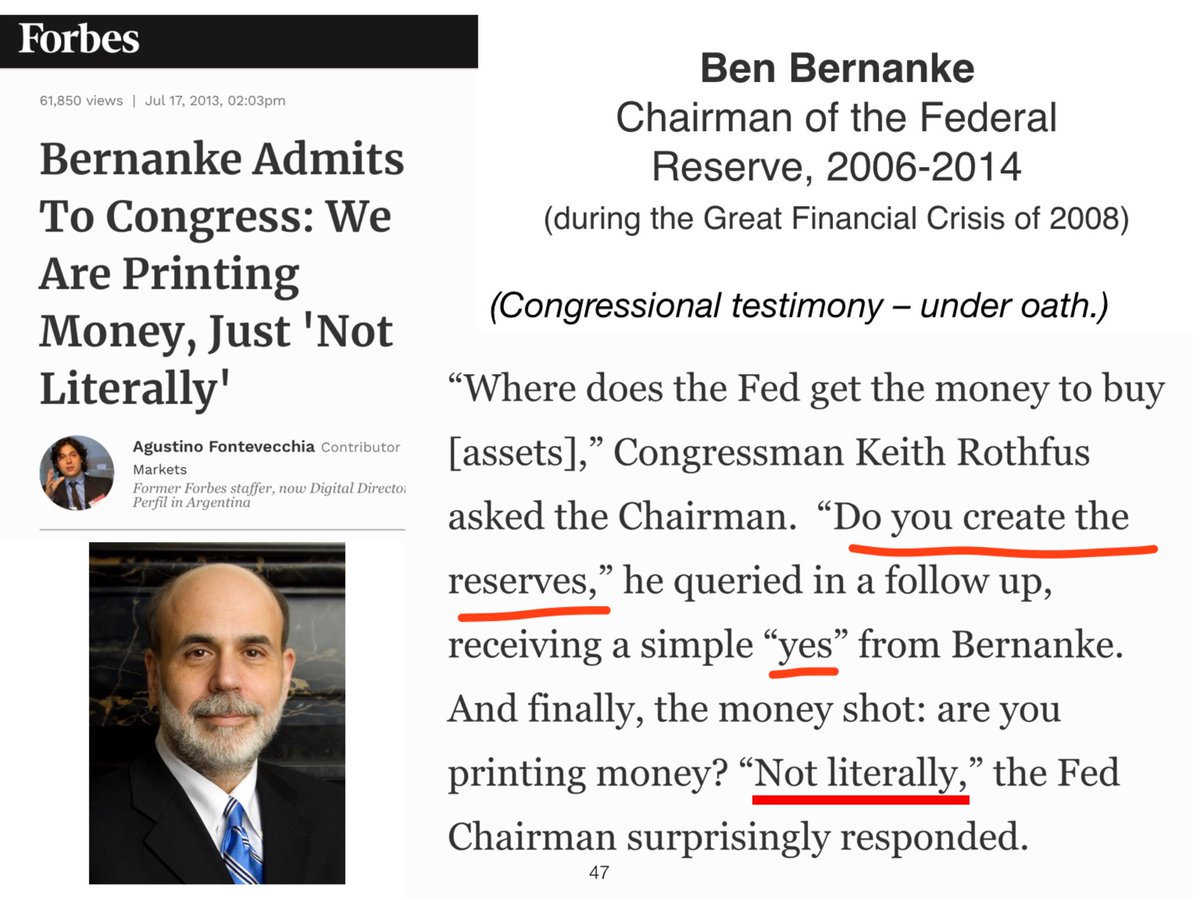
Let’s say our company currently has $100,000 in TD Bank, and owes $15,000 in taxes.
They fill out their return and send it with a check to the IRS.
The money just disappears.
When money is taxed back (marked down), it dies.
If it weren’t balanced in this way, the economy would quickly grow out of control. Taxation is a major tool for controlling inflation.
Around the same is transferred by each of the CB’s in the UK, the EU, and Japan.
Banks (local branches) also create money via loans, but this is very different, in that it puts you immediately into PRIVATE DEBT.
